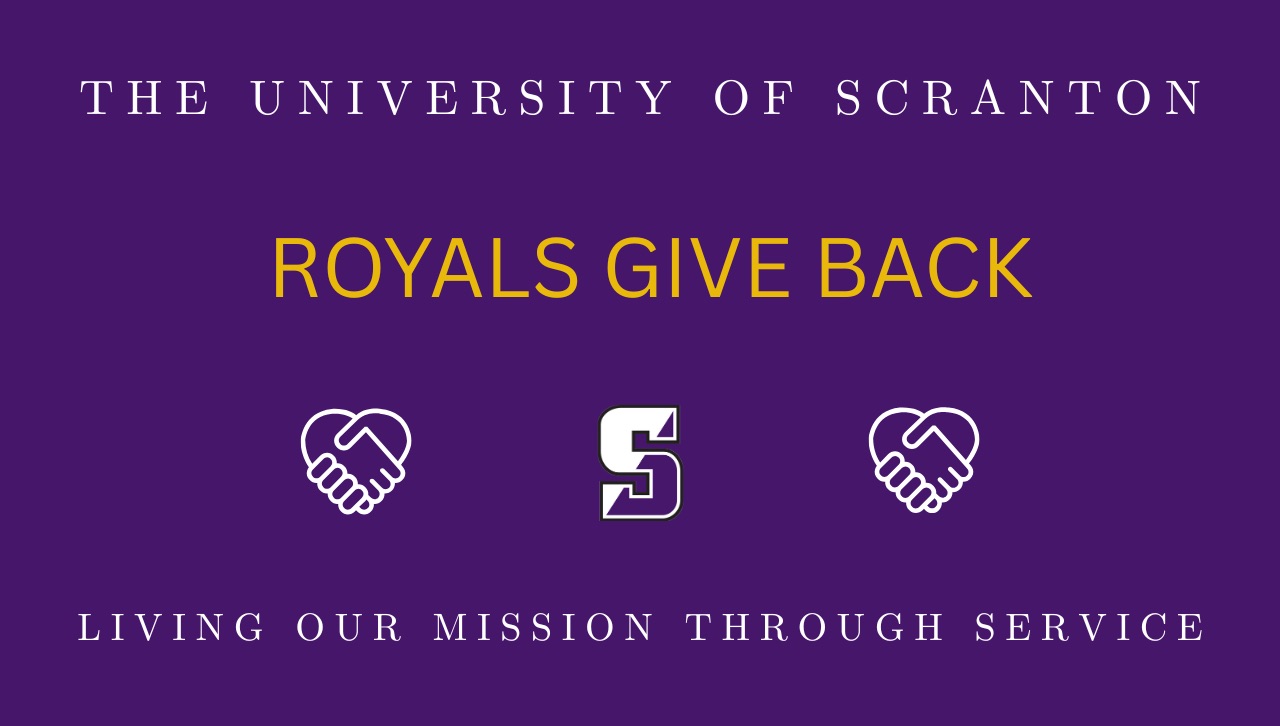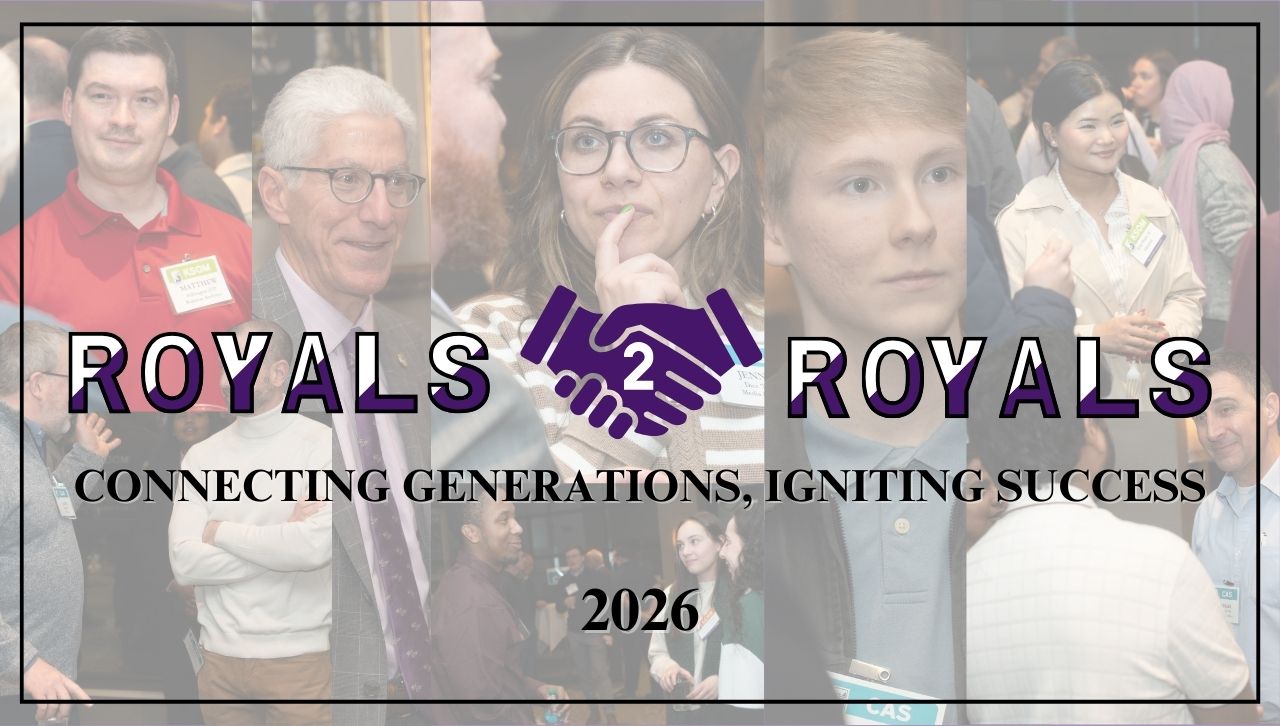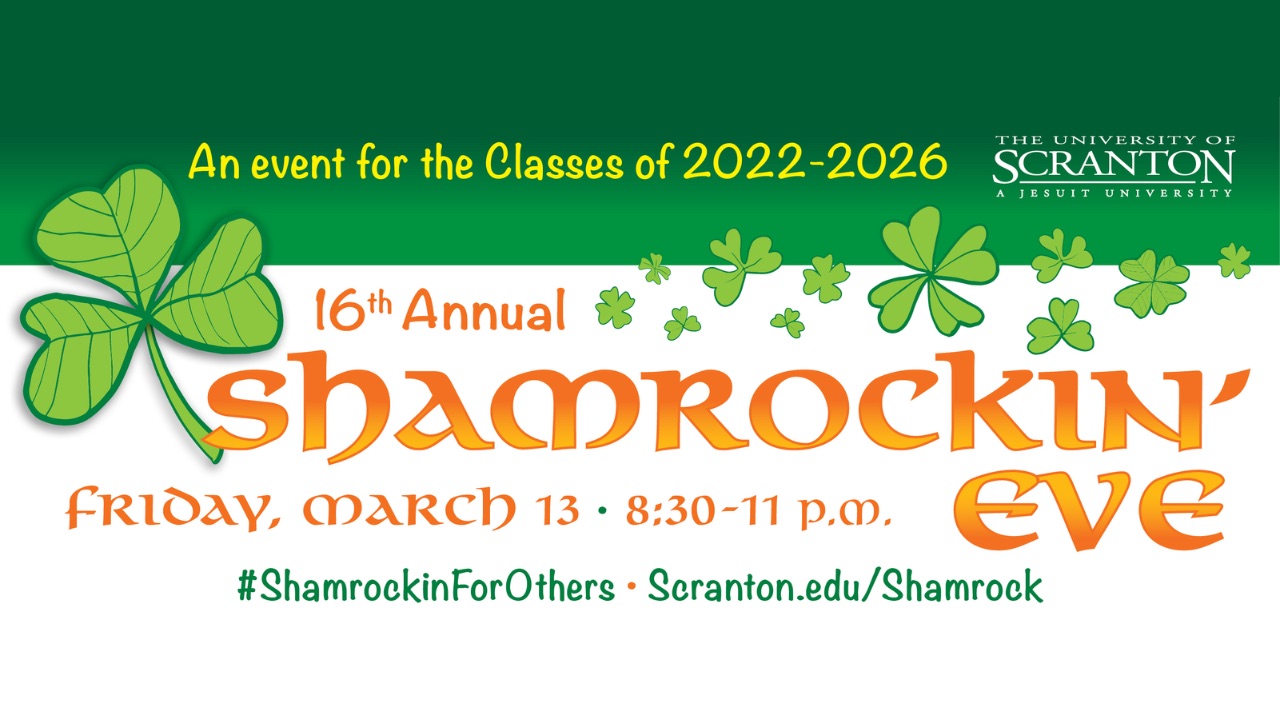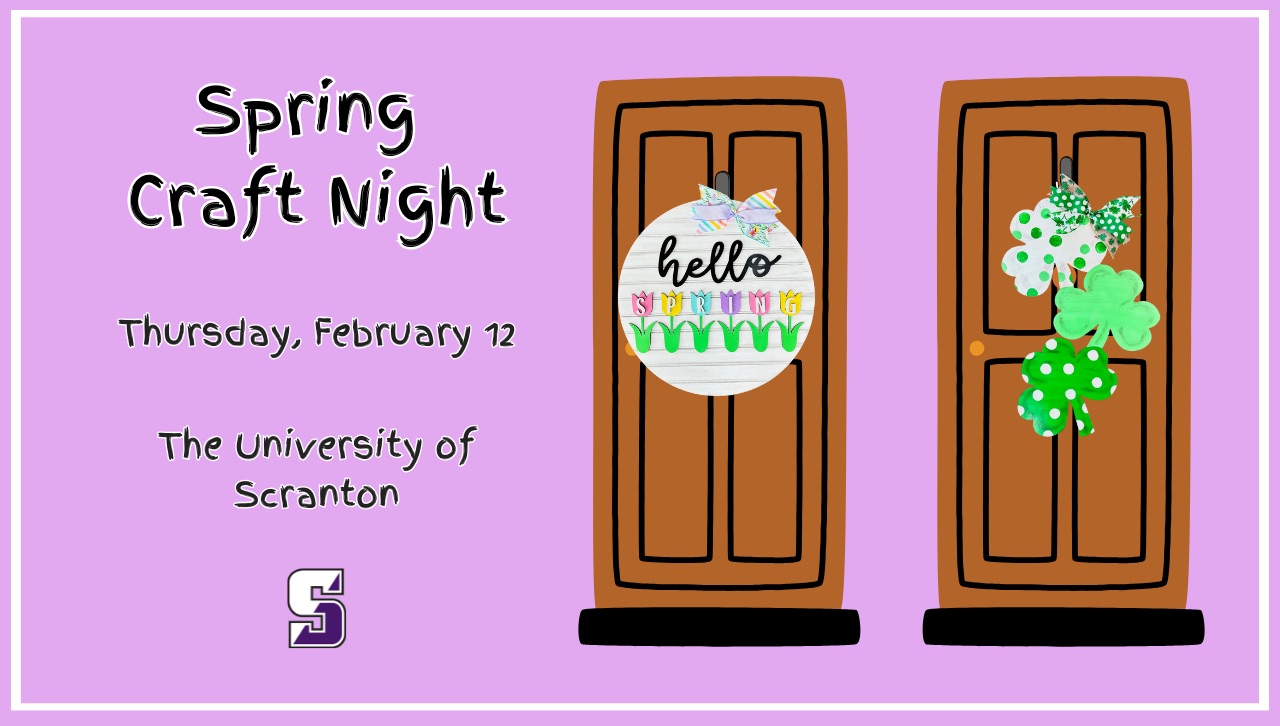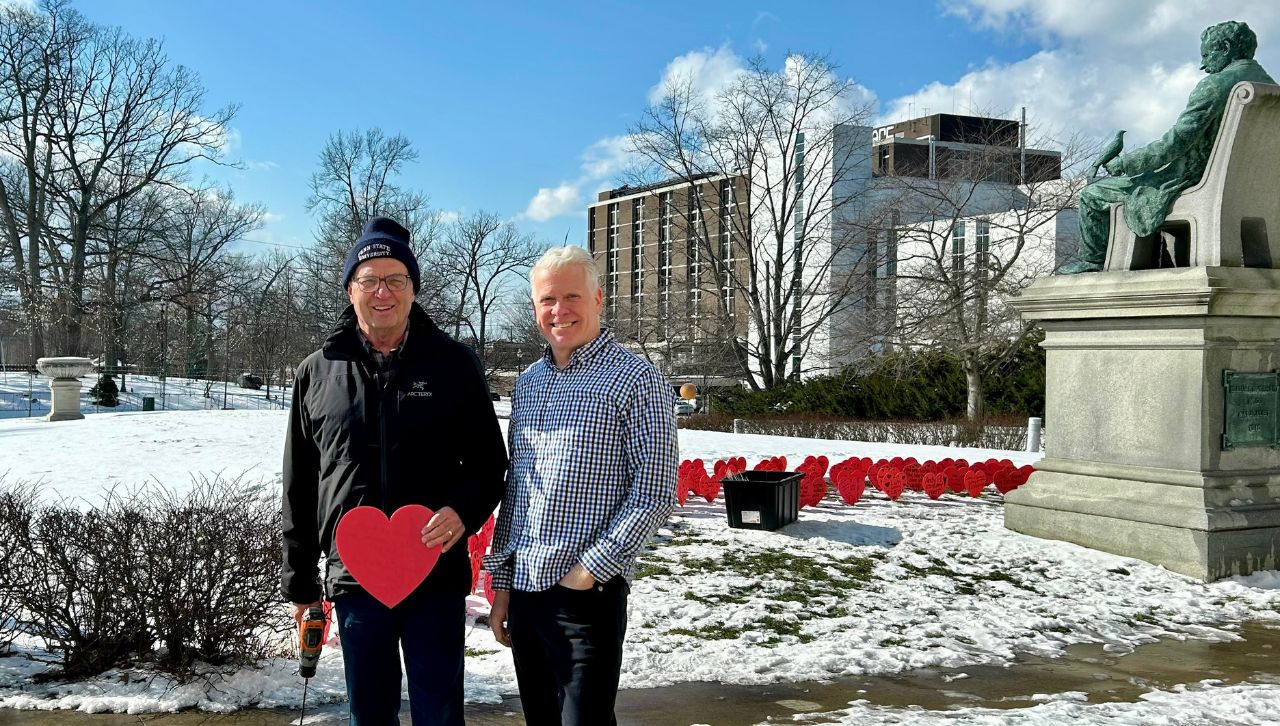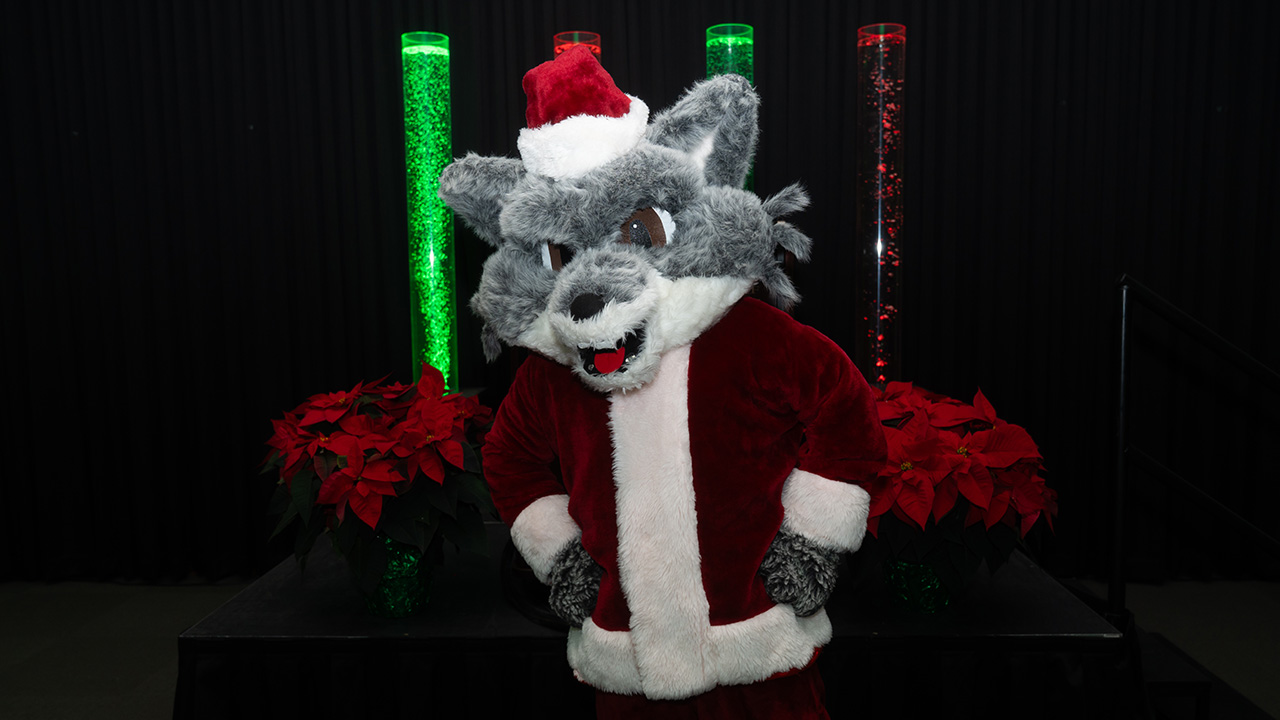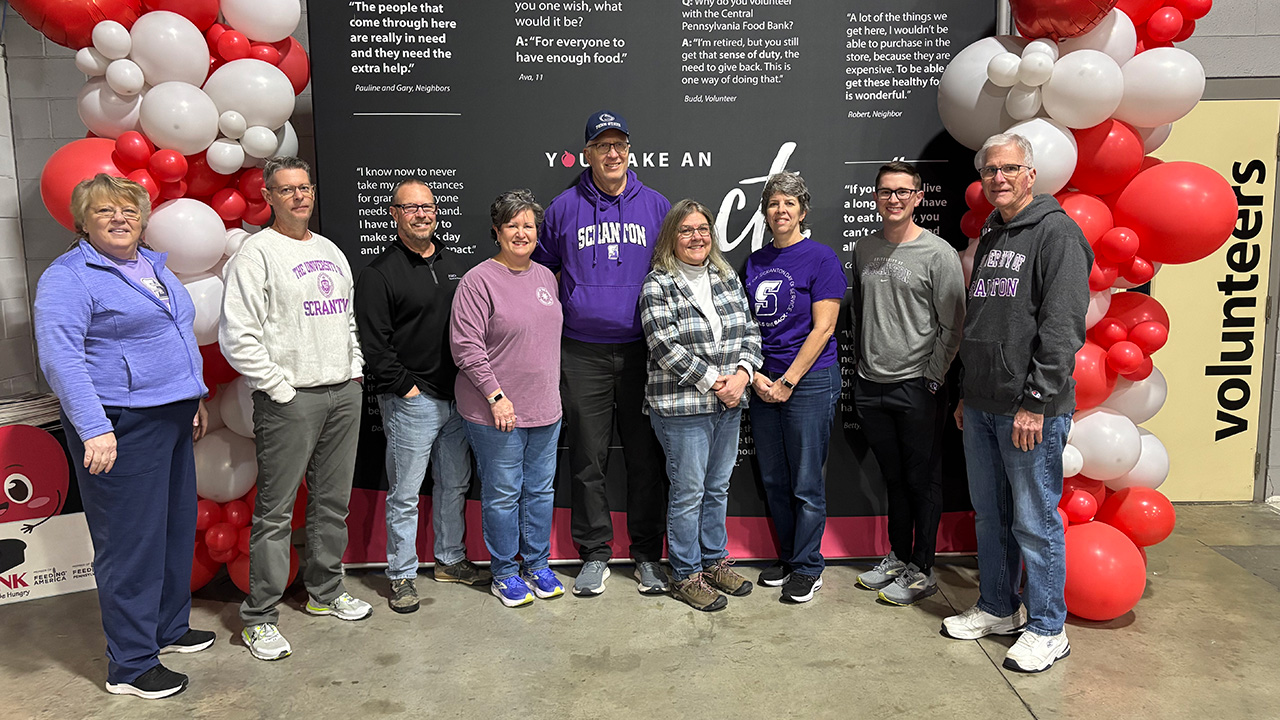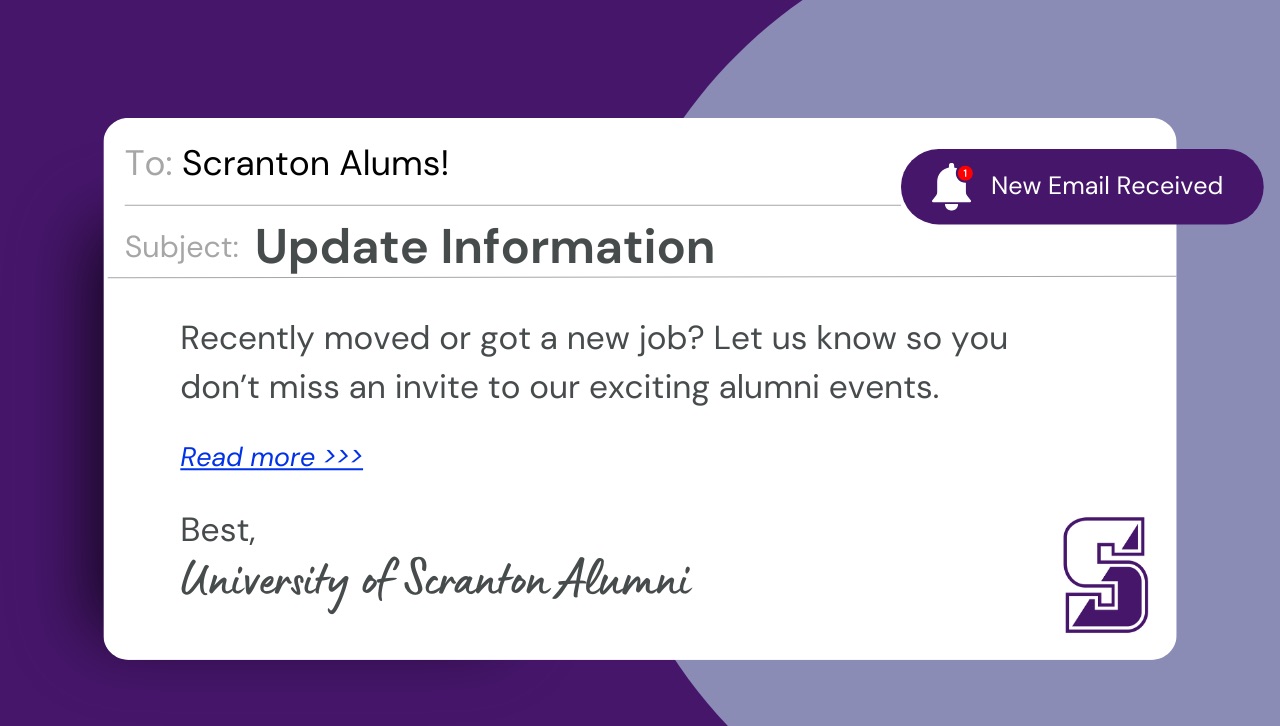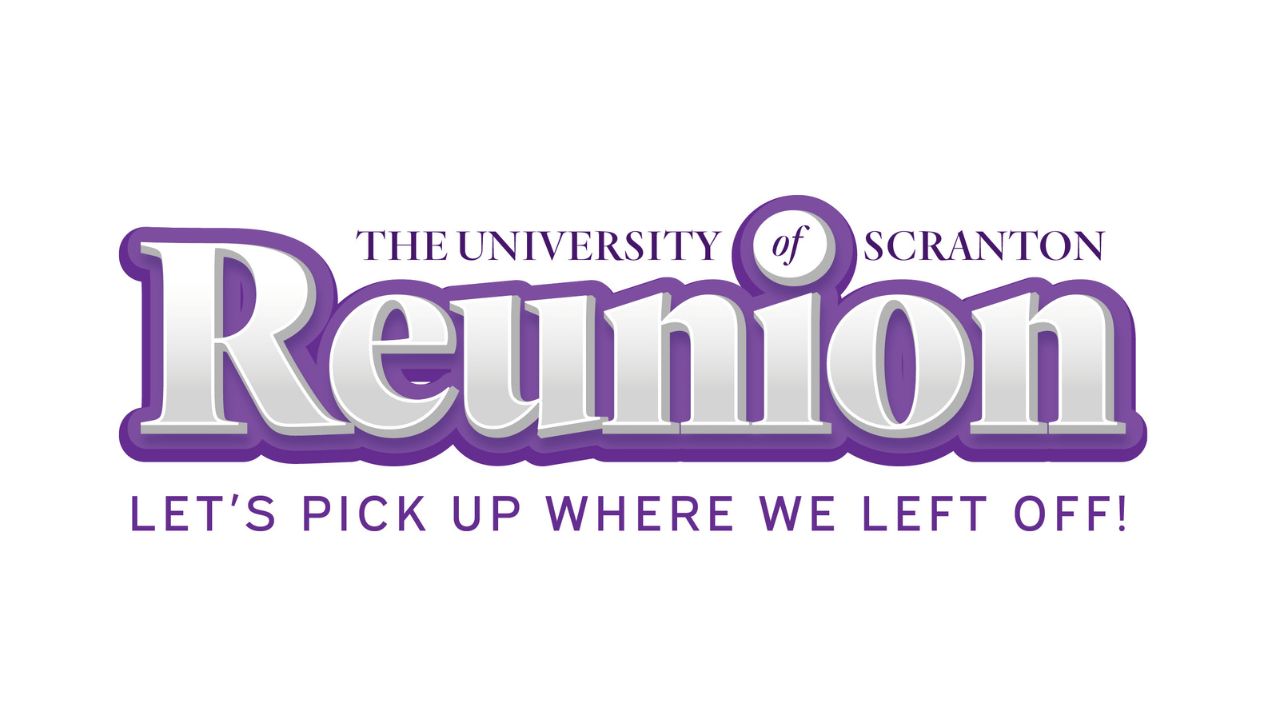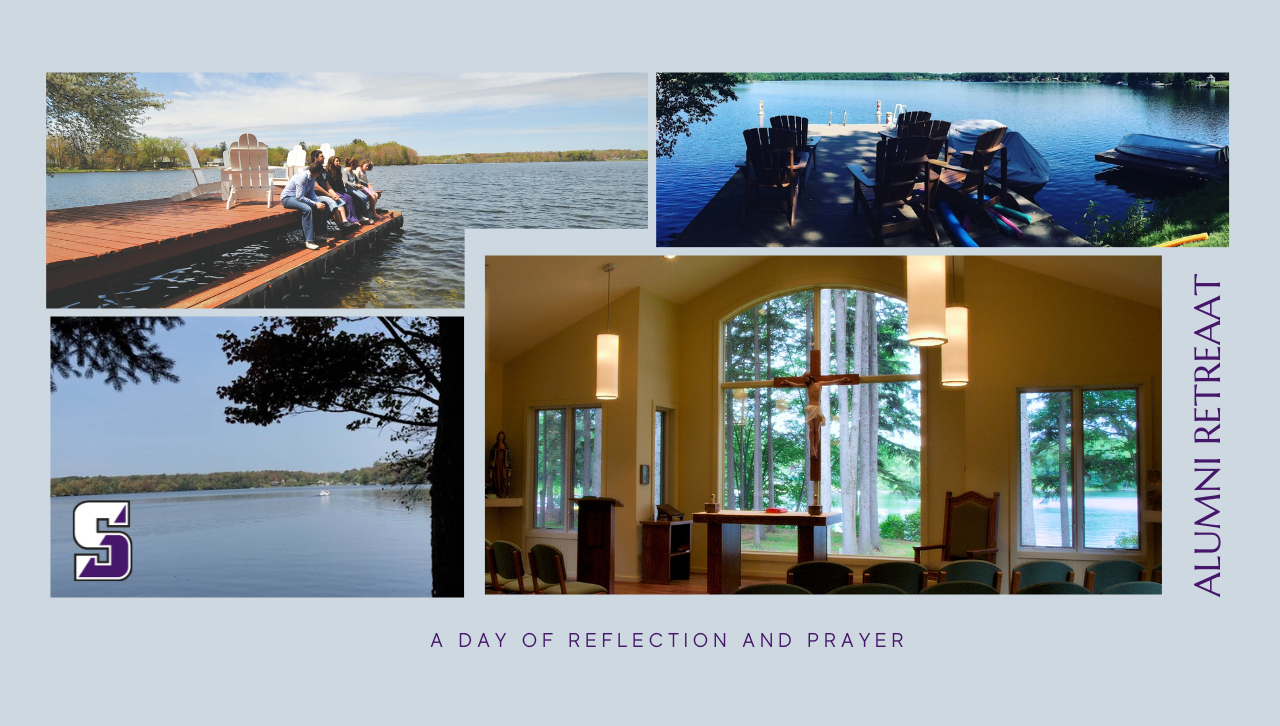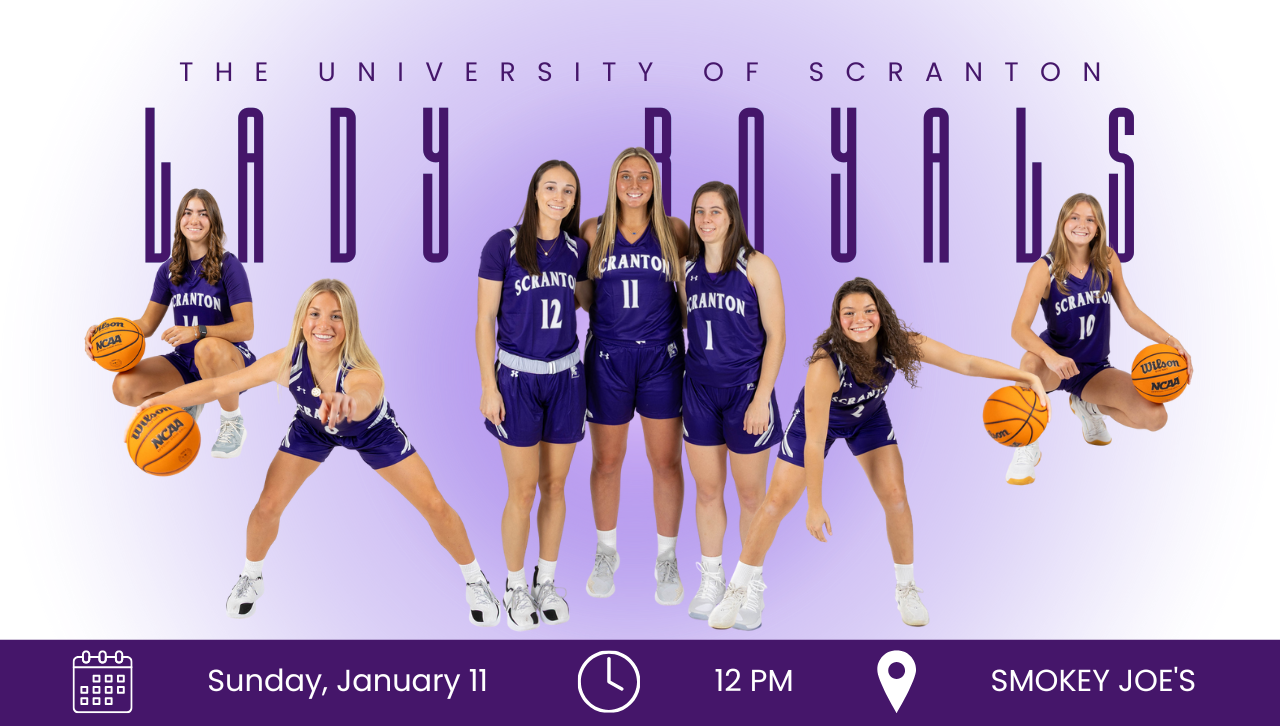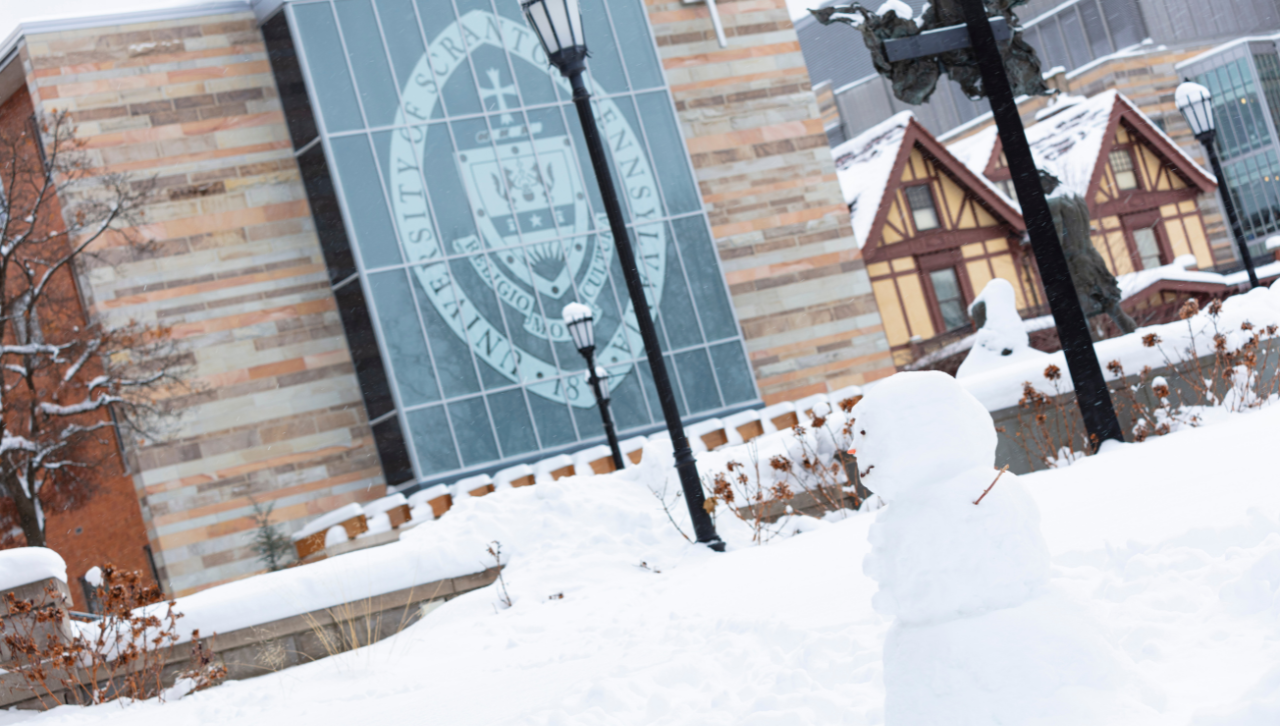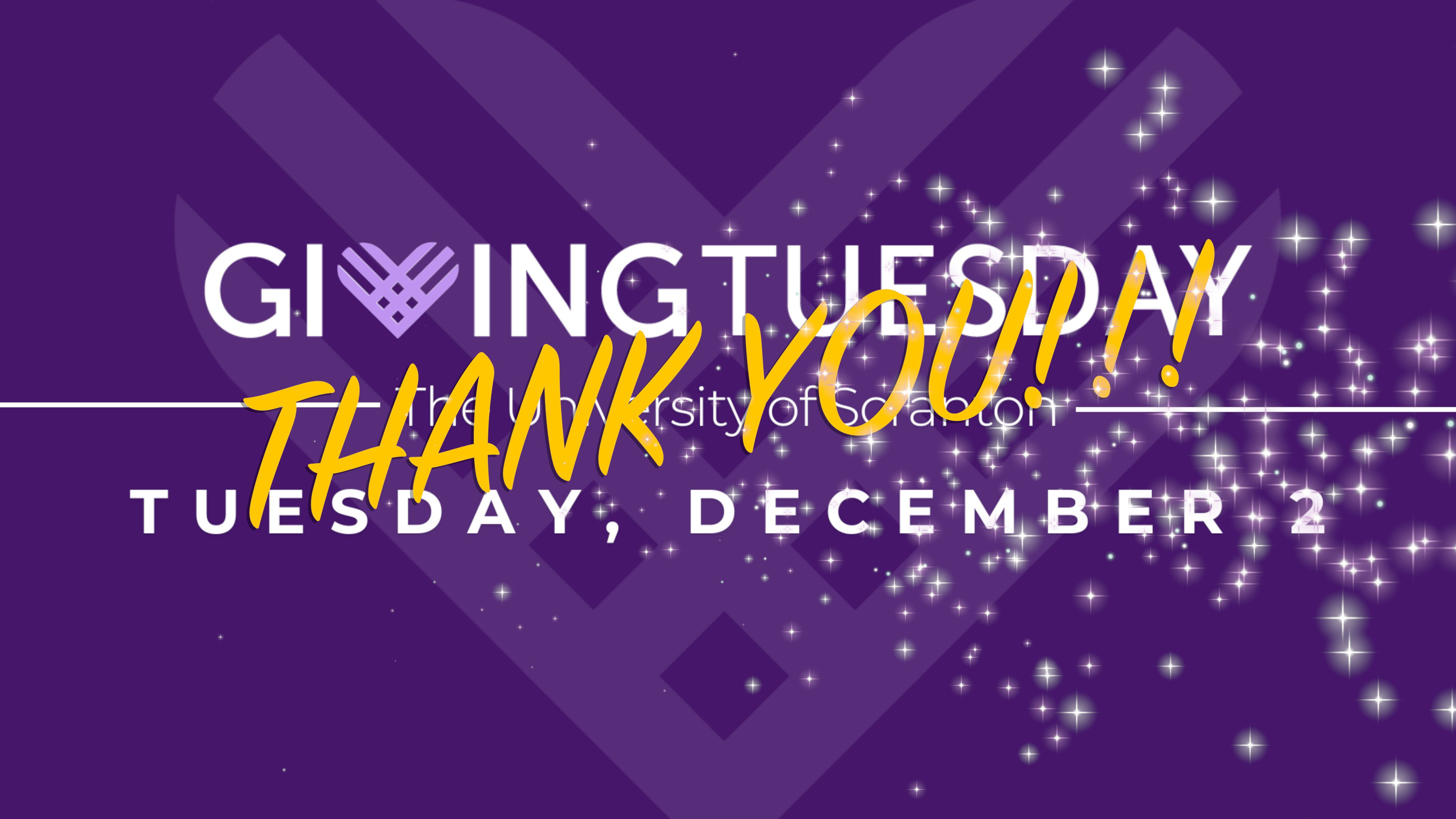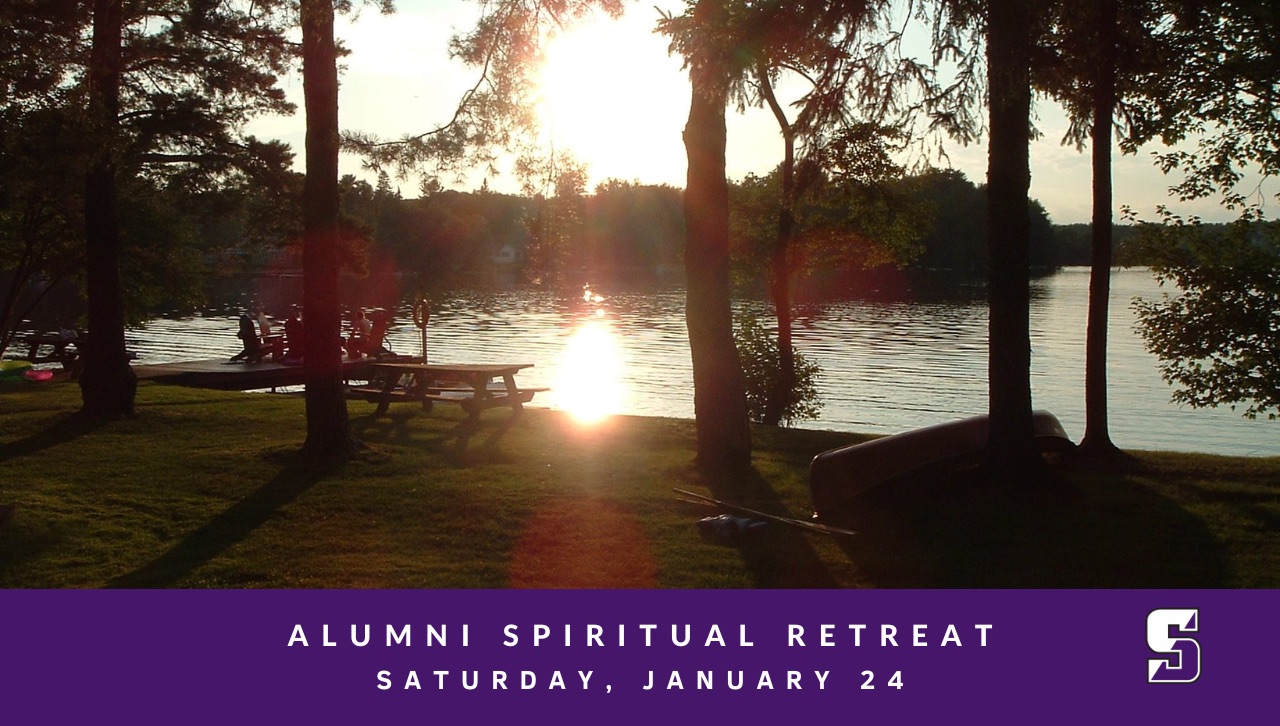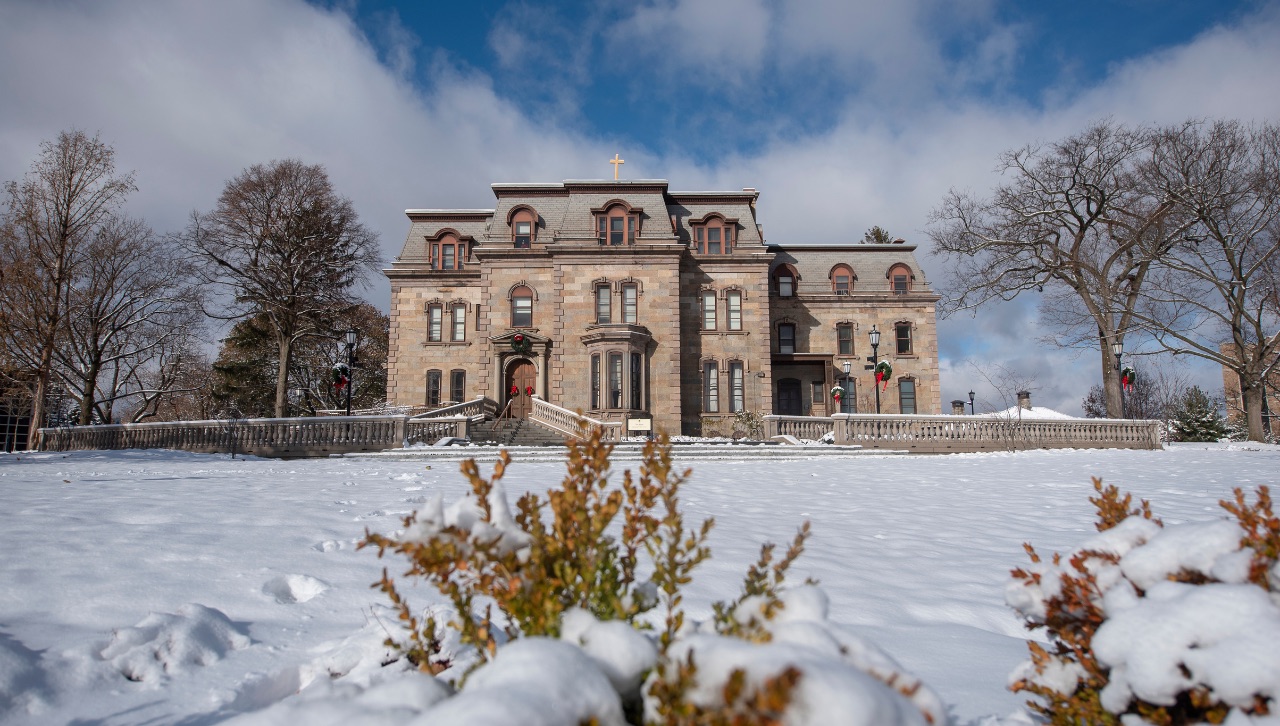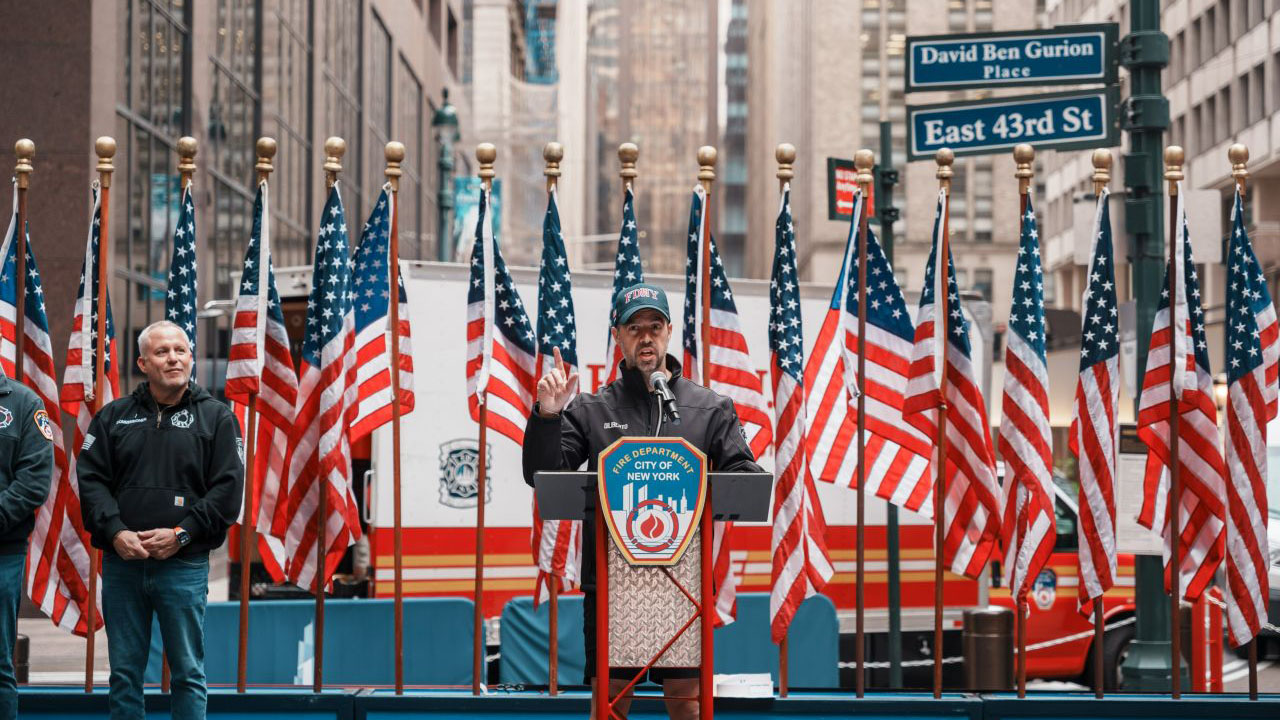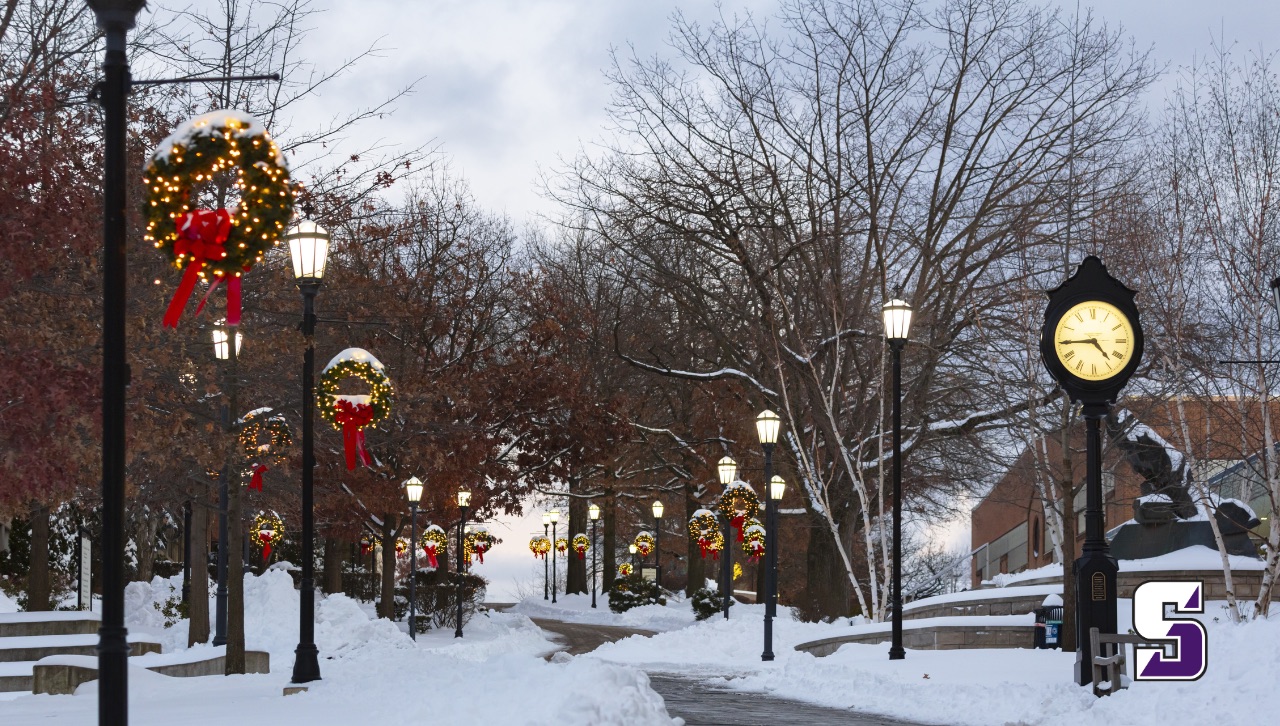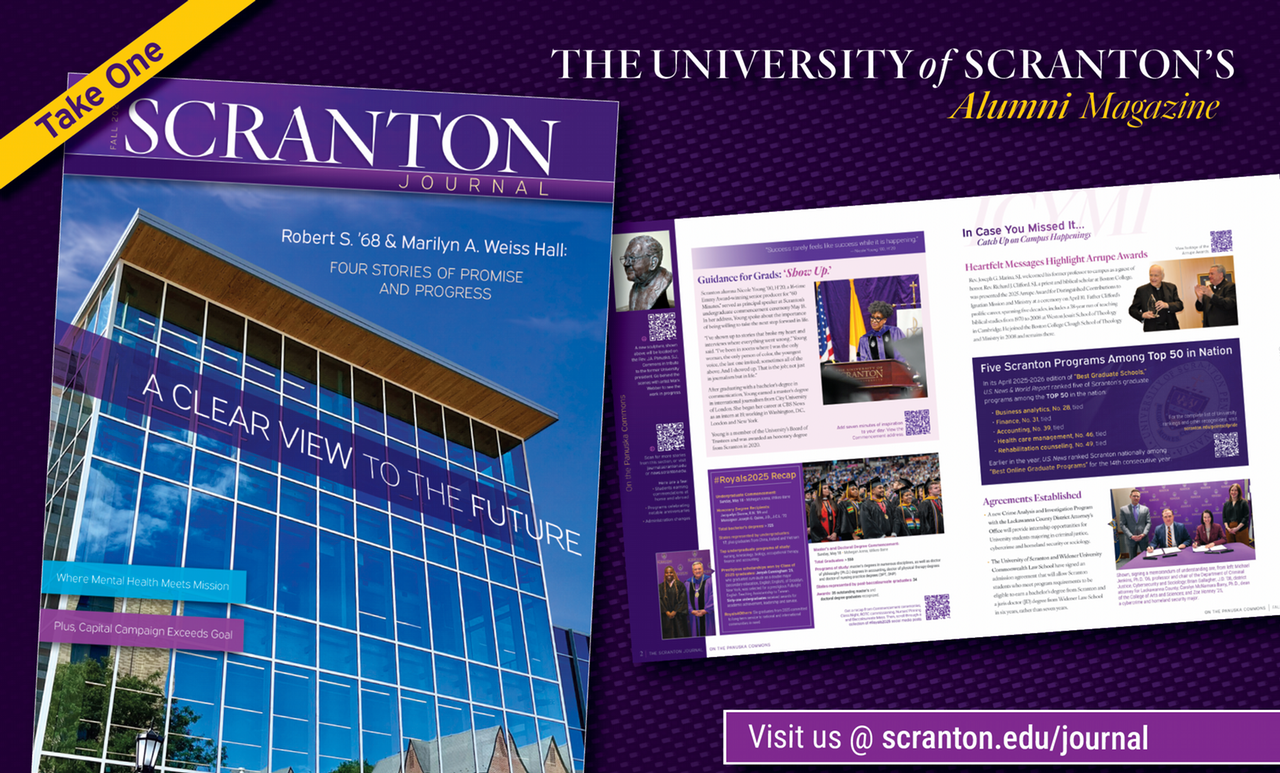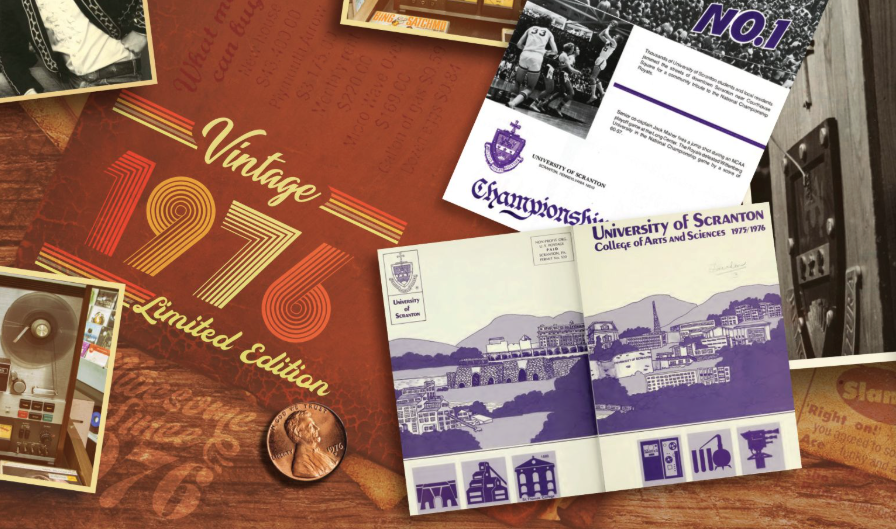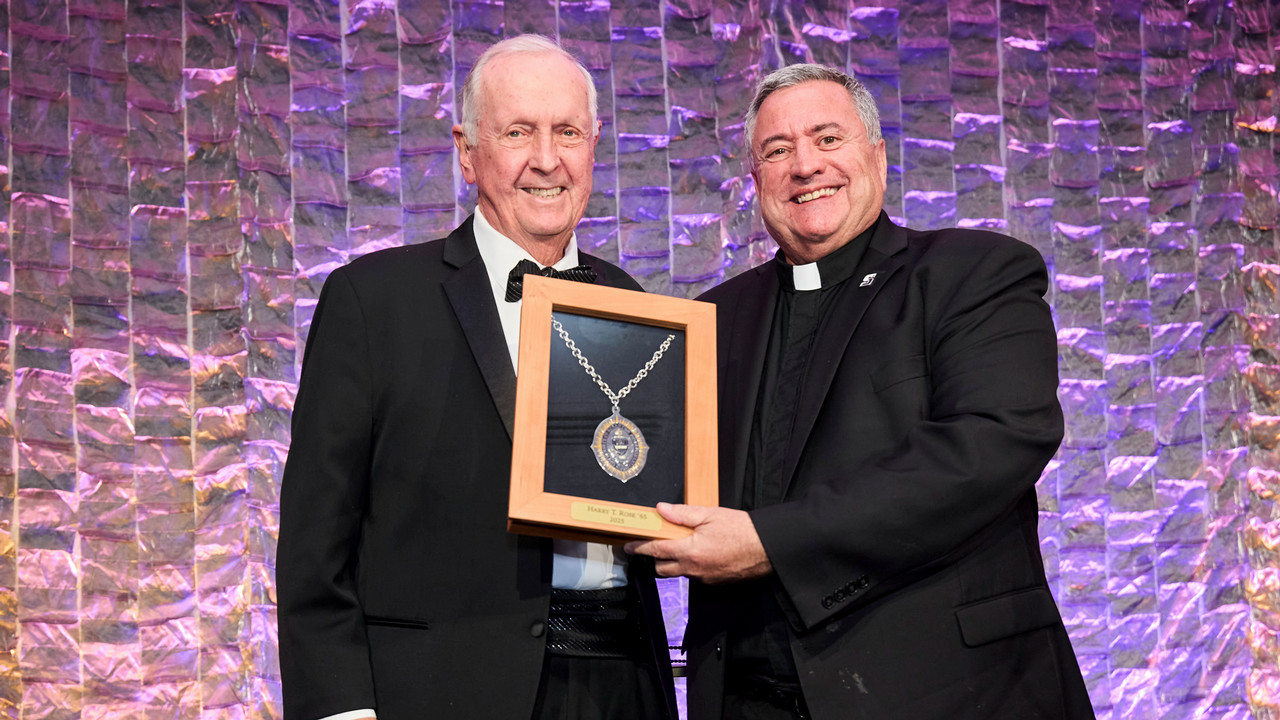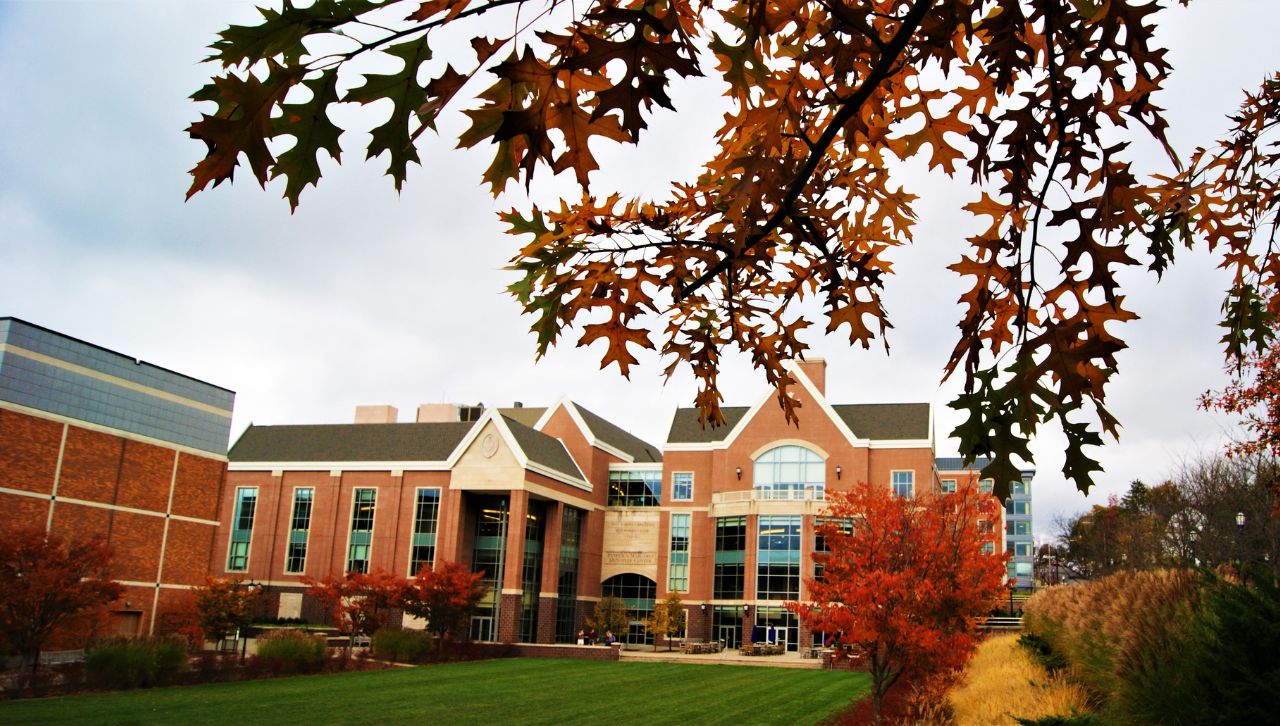Pop quiz, hotshot: You’re a public accountant hired at a Big 4 firm fresh out of Scranton, and the managing partner of your office calls you into a private meeting to tell you the firm loves your work, which means you’re going to move up the ladder quickly. There’s just one problem: You spend your off time fighting fires, literally risking your life by running into burning buildings, and the firm is “concerned” that the amount of time, effort and money it will be investing into your career could be canceled out the next time the alarm bell rings at the firehouse. In short, you’re being asked to extinguish your passion so that your profession can thrive. What do you do? What do you do?
If you’re Matt DiLiberto ’96, the alarm bell in your head begins to ring, and you quickly decide you’re going to keep fighting fires and find yourself a new job.
“That was my indication I had to leave,” said DiLiberto nearly 30 years later. “To look at somebody who’s putting their life on the line for the sake of others and tell them, ‘We frown upon that,’ is not a place I want to work.”
DiLiberto shares this story on a call taken in his office at SL Green Realty Corp, New York City’s largest office landlord, where he has worked for the last 21 years; he’s also remained an active firefighter since that fateful meeting all those years ago. As SL Green’s chief financial officer, a position he’s held since 2015, he not only handles its accounting, finance, and cash management, which he describes as “typical CFO responsibilities,” but he also handles its corporate capital market functions and investor relations, something that takes up the majority of his time on the clock by choice.
“I enjoy hearing directly from our shareholders,” he said. “It’s very helpful for me in my role … to be talking to them directly. I know a lot of people might say, ‘Wow, that seems like way too much extra work,’ but I enjoy it, and I enjoy the people.”
While overseeing the financial destiny of a $15 billion company would keep most people busy enough for two lifetimes, DiLiberto, 51, somehow also finds the time to act as the chairman of the FDNY Foundation, the official non-profit of the New York City Fire Department, where, among other duties, he recently oversaw a gala dinner that raised a record-breaking $4.2 million for the foundation.
“We have a very simple directive as the official charity of the FDNY – raise as much money as possible to support the needs of the department,” he said. “It’s incredibly fulfilling, and I’m in awe of the department and the people that work there.”
Factor in the domestic demands of his Rumson, New Jersey household, which he shares with his wife, Amanda, and their three young children, and one might suspect that DiLiberto must have access to a time machine to be able to keep up with everything (he does – it’s called an alarm clock, and we’ll explain more about how he optimizes its functionality later). How does he juggle it all and continue to excel at the highest levels of real estate and philanthropy? The answer, it turns out, is both refreshingly simple to state and notoriously difficult to execute: Matt DiLiberto is unapologetically himself whether he’s in the board room or the firehouse, and he’s been that way his entire adult life.
“I’m more direct … than most CFOs,” DiLiberto said. “They get me, they don’t get somebody else. They don’t get the ‘work me,’ they get me. I am me here in the office, and I’m me at the firehouse.
I speak boldly.”
‘I love the vibe here.’
DiLiberto was born in Binghamton, New York, and spent time in the Syracuse area and on Long Island before his family settled in Whitesboro, a suburb of Utica, for the bulk of his youth. When he was about five years old, his father became a firefighter in Moyer’s Corners outside of Syracuse, and the young DiLiberto began his lifelong love affair with the culture of firefighting.
“I was at the firehouse all the time hanging out in the trucks, hanging out with the guys, eating popcorn,” he said. “It just got in my head at an early age.”
When the time came to look at colleges, DiLiberto had it all figured out: he wanted to go to Penn State. So, he submitted his application, received an early acceptance notice, sent in his paperwork, and figured he was good to go. His mother, however, insisted that he visit a few more schools she thought might be a good fit for him, which is how he found himself stepping onto the University’s campus for the first time. After taking a tour of campus, he was impressed enough to apply to Scranton.
Shortly after, DiLiberto, who played lacrosse in high school, received a call from the University’s lacrosse coach, who invited him to spend some time with the team, and it was that experience that convinced him that Scranton was the right place for him. And, although he never ended up playing lacrosse at Scranton, he credits it with convincing him to become a Royal.
“I had the best time,” DiLiberto said of the experience. “I liked the size of the school, the nature of the people.
“It was a vibe. I love the vibe here.”
Lessons learned
Growing up, DiLiberto said he’d always had the “financial mindset” where he loved the concept of making and managing his own money. After taking a few accounting classes in high school and realizing that accounting was an in-demand, high-paying field, he decided to major in accounting and minor in management information systems and history.
“I like numbers and money, so I was like, ‘This seems like the right combination,’” he said with a laugh.
Although his parents paid 100 percent of his tuition and gave him a generous allowance while attending Scranton, DiLiberto worked a variety of odd jobs during his student days, including delivering pizzas, clerking at a grocery store and working at Bank of America.
“I liked to work,” he said. “I didn’t have to build into my work ethic, I kind of always had it, which was helpful.”
On campus, DiLiberto joined the Accounting Society and became its president during his senior year. He also made a point of developing relationships with his professors, especially with Michael Mensah, Ph.D., who was his favorite accounting professor and who would later become dean and dean emeritus of the Kania School of Management. Through his friendship with Mensah and his experiences with his other professors, DiLiberto learned the importance of forging personal relationships, the first of two critical lessons he internalized at the University.
“Don’t just sit at a desk and attend to what you’ve been told to attend to,” he said. “Get up. Move around. Make your own path. Make your own relationships. Learn from those who have been here, and that started at Scranton.”
DiLiberto stumbled upon the other critical lesson when he realized how much work he could get done by combining the serenity of a quiet place with his most productive time of day, which was the morning.
“I’ve always been a morning person,” he said. “I had a corner of the library that probably most people didn’t know even existed, and that’s where I got work done. And so, I encourage people to find a quiet place at the right time of day when they’re most productive to get stuff done.”
Two careers, one mindset
At Scranton, DiLiberto set his efforts toward achieving two goals: securing a position at a Big 4 firm and serving his community as a firefighter. He achieved the first goal before graduation when he was hired as a business assurance associate at that Big 4 firm’s Parsippany, New Jersey, office, and, after relocating to Nutley, New Jersey, for the job, he began working toward becoming a firefighter with the Nutley Fire Department. There was just one problem: the department required all applicants to have established residency for at least a year. While many of us might have sat upon that knowledge and waited a year to begin helping our communities, DiLiberto instead went to plan b and went through the Bergen County Emergency Medical Services Academy to become an Emergency Medical Technician with the Nutley Rescue Squad. Once he’d established residency, he went back to the Bergen County Fire Academy and joined the Nutley Fire Department.
“The most gratifying thing, short of my kids, that I’ve done in my life is all of my firefighting and EMS work,” DiLiberto said.
After deciding to leave that Big 4 firm, DiLiberto began working as a senior financial analyst at Vornado Realty Trust, which gave him a front-row seat to the corporate and public company aspects of a real estate company. He then put in a four-year stint at Chelsea Property Group as controller and director of information management before joining SL Green Realty as a controller and beginning his rapid ascent to the executive level. All the while, he continued to serve various communities as a firefighter and EMT without causing any of the “concern” from his superiors he encountered at the outset of his career.
Which brings us back to that time machine.
Time machine
Given the various demands of his positions, no two days are alike for DiLiberto.
“It’s 50 percent investor relations, 50 percent everything else as CFO, and then 50 percent FDNY – that’s my professional life,” he said. “Today, I’m working on a deal that’s different than the deal I was working on yesterday and could be different than the deal I’m working on tomorrow because (SL Green is) not good at sitting around and enjoying the fruits of past labors – it’s all about what’s next on the horizon.”
In case you missed it, DiLiberto casually mentioned that he utilizes 150 percent of his time, which should be impossible; he does this by setting his “time machine,” aka, his internal alarm clock, to 3:45 a.m. each day and taking full advantage of the quiet time of the morning to get ahead of the curve while most of the world is still asleep. By 5:20 a.m., he’s already out of the house to catch a 5:50 a.m. boat into the city, and he generally arrives at SL Green’s headquarters by 7 a.m. He then leaves the office in time to see his kids before their 7:30 p.m.-ish bedtime, and he’s back up at 3:45 a.m. to do it all over again the next day.
“We’re the opposite of 9-5,” he said. “We are 24/7 and in the office five days a week, so it’s a very stressful but adrenaline-filled and rewarding place to work. You have to have a certain personality for it.”
A man for and with others
Given the prestige of his position, readers would be forgiven for thinking he must sit in a spectacular office with a floor-to-ceiling window overlooking the Manhattan skyline; instead, DiLiberto occupies the same small, interior office he occupied before becoming CFO, and he wouldn’t have it any other way.
“I like being around everybody who is doing the job,” he said. “I don’t believe there needs to be this separation between the most senior levels of management and the most junior levels of the employee base. I enjoy those interactions.”
That belief was confirmed this past summer when Rebecca Boyle ’27, a business administration major interning at SL Green on the operations team, reached out to DiLiberto via email to see if she could meet with him, which he charmingly referred to as “bold move number one.”
“Rebecca, to me, is exactly what I look for in young personnel,” he said. “She is whip smart, and, above all else, could have a conversation with me.”
“When I interview people these days … I don’t need to read a resume. Let’s just see if we can have a conversation. She could, in spades.”
Given the amount of time DiLiberto devotes to speaking with his investors and his staff, it’s clear that he enjoys connecting with others, a skill that serves him well in his role as chairman of the FDNY Foundation.
“The gala is our biggest (fundraiser), but we raise money all year long,” DiLiberto said. “I will meet with the fire commissioner and his administration to understand their needs, and I will attend events to represent the foundation.
“There are 17,000 people that work there, so if I can in any way help their efforts, it’s a great pleasure for me.”
And, when asked if he had any advice for current students, DiLiberto was quick to put his mouth where his money is by stressing the importance of financial literacy.
“Take an accounting class,” he said. “The benefits it can have on the rest of your life are immeasurable. Everybody should know the basics of accounting for their own personal financial wellbeing.”
He also advocated boldly pursuing one’s goals today, tomorrow, and the day after that, a bit of preaching he’s practiced since his Scranton days.
“If you want something, whether it’s accounting or real estate, get yourself involved in it,” he said. “If you want to achieve your ultimate goal, you have to get after it yourself. You can’t rely on it finding you.”



